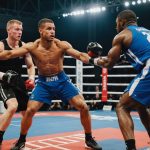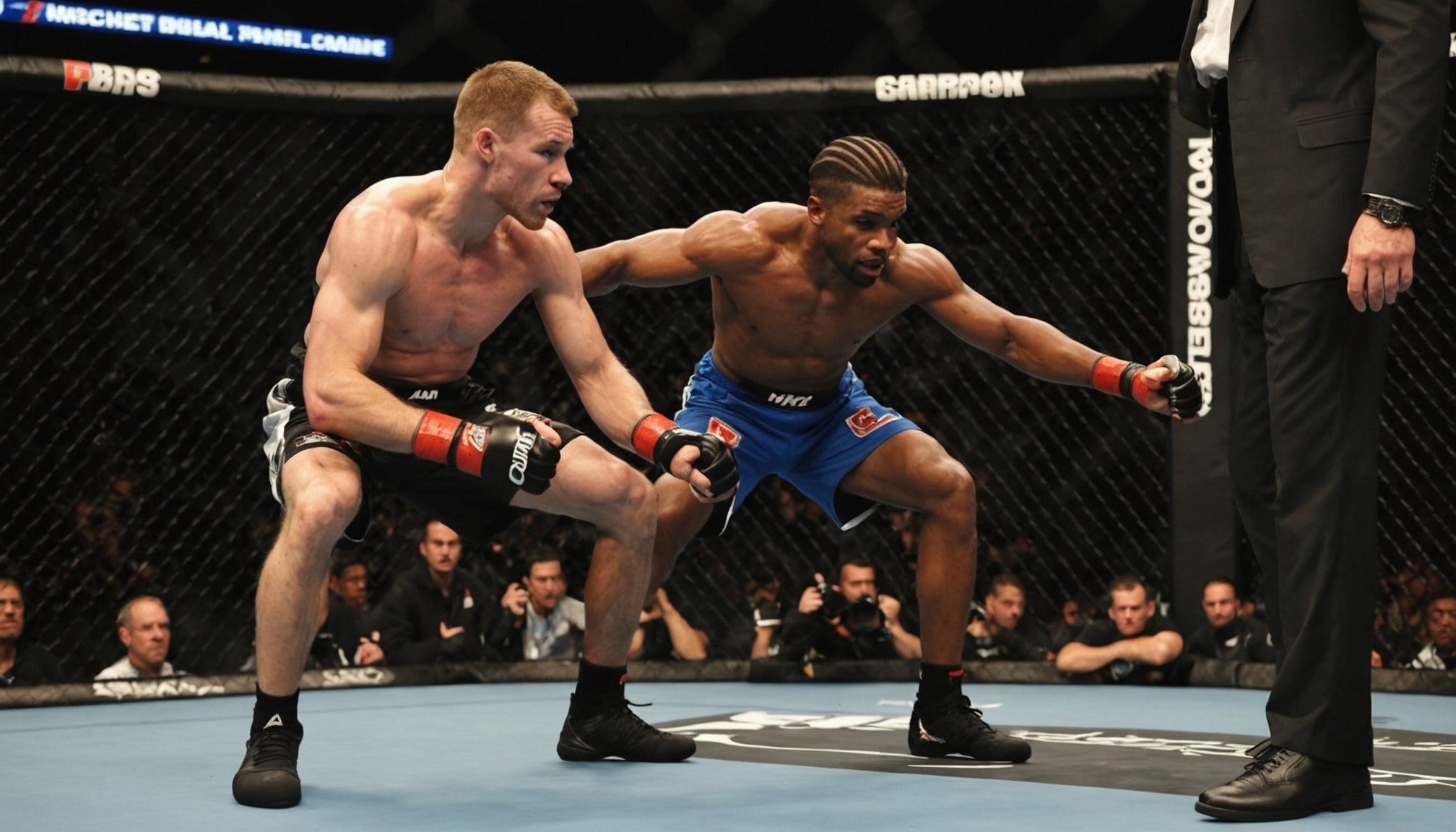Impact of Mental Preparation on Combat Sports Performance
Mental preparation plays a crucial role in enhancing combat sports performance. Athletes who invest in targeted mental training develop a stronger athlete mindset, which directly influences their ability to stay focused during intense competition. This preparation strengthens concentration, allowing fighters to make rapid, effective decisions under pressure.
Research shows that the immediate impact of mental preparation includes heightened alertness and emotional control. These factors reduce hesitation and help athletes respond swiftly to opponents’ moves. Additionally, mental training improves confidence, which is essential for maintaining composure in unpredictable situations common in combat sports.
This might interest you : What role do UK combat sports play in promoting fitness and health?
The consistent practice of visualization, breathing exercises, and self-talk techniques enhances mental resilience, contributing to better combat sports performance. By regulating anxiety and promoting a clear mindset, mental preparation becomes as vital as physical training. It empowers fighters to maintain focus in chaotic environments and execute strategies with precision.
Therefore, integrating mental preparation into regular training regimes significantly elevates performance, demonstrating the profound impact of mental training on an athlete’s overall success in combat sports.
Additional reading : What Are the Training Regimens for UK Combat Athletes?
Key Mental Training Techniques for Fighters
Mental training techniques are essential for fighters aiming to excel in competition. Visualization stands out as a powerful method, allowing athletes to mentally rehearse techniques, anticipate opponents’ moves, and boost confidence. Visualizing successful executions can enhance skill retention and improve performance under pressure.
Stress management is another crucial aspect. Fighters use breathing exercises, mindfulness, and progressive muscle relaxation to control adrenaline surges before and during bouts. These strategies help maintain composure and reduce anxiety, keeping the mind clear and responsive.
Focus training drills sharpen concentration, enabling fighters to stay present despite distractions. Techniques such as meditation and attention control exercises cultivate sustained attention, which is vital during high-stakes matches when split-second decisions matter.
By integrating visualization, stress management, and focus training, elite combat athletes craft a robust mental framework. This combination not only enhances performance but also builds resilience, making it easier to adapt to the unpredictable nature of fights. Embracing these mental training techniques fosters a balanced mind that complements physical readiness.
Confidence, Resilience, and Psychological Readiness
Building confidence in combat sports begins with adopting structured mental routines. Athletes who rehearse visualization and positive self-talk daily often report stronger belief in their skills. This practice anchors confidence, allowing fighters to approach challenges with a calm, assertive mindset. When asked how to build confidence quickly, focusing on consistent mental preparation rather than external results yields the best response.
Resilience plays a pivotal role when setbacks occur during training or competition. It is the ability to recover swiftly and maintain focus under stress. Techniques such as controlled breathing and reflection on past successes fortify resilience. The question of how resilience benefits fighters has a precise answer: it minimizes performance drops after errors and sustains motivation through adversity.
Being psychologically ready transcends physical preparedness. Psychological readiness acts as a critical competitive advantage by aligning mindset with fight demands. Its components include mental rehearsal, stress management, and tactical confidence. This triad equips fighters to perform under pressure and adapt dynamically in the ring, essential qualities in high-stakes combat sports.
Scientific Evidence and Expert Perspectives
Recent sports psychology research consistently highlights that mental preparation significantly enhances performance in combat sports. Scientific studies show that fighters who engage in visualization, goal-setting, and stress management report better focus and resilience during matches. These techniques not only reduce anxiety but also improve decision-making under pressure.
Experts, including renowned sports psychologists and experienced coaches, emphasize the importance of mental conditioning alongside physical training. They note that psychological readiness can be the difference between victory and defeat. Coaches working closely with fighters observe increased confidence, quicker recovery from setbacks, and improved tactical execution when mental strategies are regularly practiced.
One key insight from these professionals is that mental preparation is not a one-size-fits-all solution. Tailoring approaches to individual fighters’ needs optimizes outcomes. For instance, some respond better to cognitive restructuring, while others benefit from mindfulness exercises.
This growing body of scientific studies clarifies the critical role expert opinions and systematic sports psychology research play in refining athletic preparation. Embracing these perspectives can help fighters reach their full potential by integrating mind and body training harmoniously.
Examples of Successful Fighters Using Mental Preparation
Mental training is a cornerstone for many notable fighters who attribute their victories to more than physical skill alone. For example, several top combat athletes emphasize visualization techniques, where they mentally rehearse fights to build confidence and reduce anxiety. This mental preparation success story is common among champions who credit their mindset as a decisive advantage in competition.
Another key routine involves consistent mindfulness and breathing exercises. These methods help athletes maintain focus during high-pressure moments, demonstrating how mental training can directly impact performance. Notable fighters often integrate these practices into daily training, transforming mental preparation from an abstract concept into a practical tool that enhances their resilience.
Athlete examples such as champions in mixed martial arts and boxing commonly share how positive self-talk and goal-setting sharpen their competitive edge. These mental training success stories underline the importance of psychological readiness alongside physical conditioning. Approaching fights with such comprehensive mental routines enables fighters to remain composed and adapt quickly, proving that success in combat sports relies heavily on well-rounded preparation.
Actionable Mental Preparation Techniques for Athletes
Mental preparation is a vital component of peak athletic performance. To integrate practical mental training into daily routines, athletes can follow step-by-step mental preparation routines. Begin with mindfulness exercises to increase focus and reduce anxiety before practice or competition. Next, use visualization techniques by mentally rehearsing game scenarios, enhancing confidence and readiness.
Implementation strategies include setting specific, measurable goals for each training session, helping maintain motivation and track progress. Athletes should also develop pre-competition rituals, such as controlled breathing or positive self-talk, which anchor mindset and calm nerves effectively.
For athletes seeking to deepen their understanding, numerous resources provide valuable information on sports psychology fundamentals and advanced techniques. Utilizing these tools can expand skillsets and create personalized mental preparation plans tailored to individual needs. Regular practice of practical mental training not only improves consistency but also embeds resilience and adaptability, crucial for overcoming adversity in sports. Embracing these preparation tips ensures athletes are equipped to meet challenges with clarity and composure, maximizing performance potential in every competitive moment.





